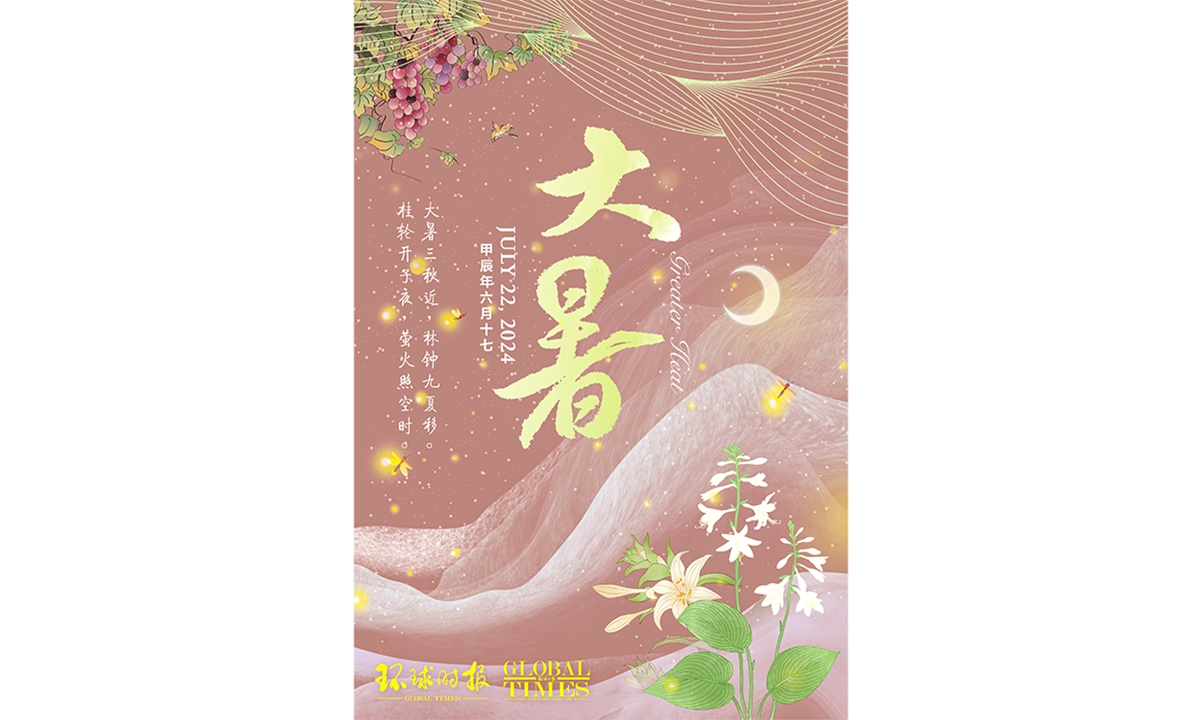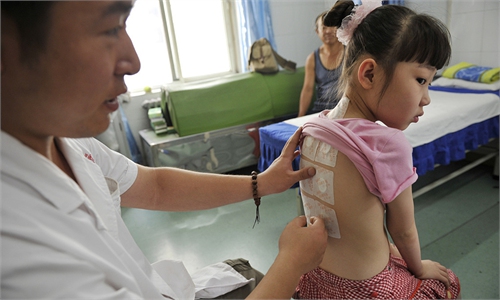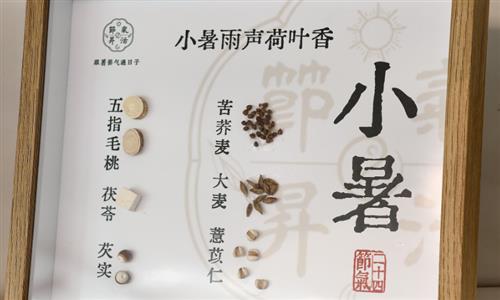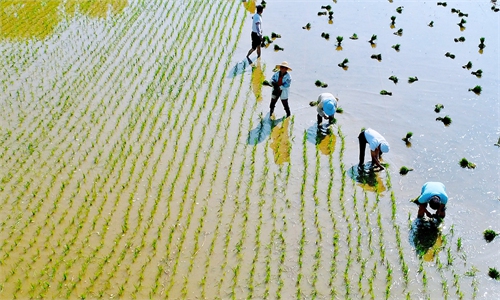ARTS / CULTURE & LEISURE
Greater Heat: What Chinese celebrate and eat during the hottest period of year

Greater Heat Poster: Global Times
As the summer sun hits its peak, the traditional Chinese calendar ushers in the final and most intense phase of the summer season with the solar term known as Greater Heat, or "Da Shu," on Monday. Greater Heat, which lasts until August 6, heralds a time of high temperatures and humidity. During this period, most parts of China are enveloped in the hottest days of the year. The sweltering temperatures are not just a climatic phenomenon but also a period rich with cultural practices and health-conscious traditions that have been passed down through millennia.
In ancient China, this period was crucial for farmers, who had to adapt their agricultural practices to the sweltering conditions to ensure a successful harvest. The intense sunlight, soaring temperatures, and frequent rainfall during Greater Heat, create optimal conditions for crop growth. However, this period also coincides with a heightened risk of natural calamities such as floods, droughts, and typhoons. Timely harvesting and planting are crucial to mitigate the potential setbacks posed by these natural phenomena.
Greater Heat is not only a climatic marker but also a cultural celebration. In East China's Zhejiang Province, Sending the Major Heat Ship is a folk tradition spanning hundreds of years. The ritual involves a wooden boat filled with various sacrifice such as pigs, sheep, chicken, fish, and shrimp. Over 50 fishermen take turns carrying the ship as they march through the streets. Drums are played and fireworks are lit. Both sides of the street are filled with people praying for blessings. Following the ceremonies, the ship is set afloat and burned at sea, symbolizing the departure of bad weather and misfortune. People carry out this ritual to pray for good harvests and health.
The abundance of crickets in the fields during Greater Heat has given rise to another traditional pastime - cricket fighting. This entertaining custom has its roots in the Tang Dynasty (618-907) and continues to be a popular activity for some, reflecting the deep cultural significance of even the smallest creatures in the Chinese agricultural calendar.
Traditional customs during this period are also designed to help people cope with the heat and maintain health. Some of these practices include drinking herbal tea, known as fucha. These teas, brewed from traditional Chinese medicinal herbs, are believed to have cooling properties that help alleviate the summer heat.
In some regions like Central China's Hunan Province, the custom of sunning ginger is observed. Ginger is placed in the sun to dry. This is believed to enhance its warming properties, which are thought to counteract the dampness of the season.
On the day of Greater Heat, the custom of eating lychee as a form of celebration is also observed in East China's Fujian Province. Lychee, a fruit rich in glucose and vitamins, is often soaked in cold well water before consumption. It is believed to be as nourishing as ginseng during this period. Similarly, pineapples, considered to be at their best during Greater Heat, are consumed on the island of Taiwan.
Another tradition is the consumption of grass jelly, known in Chinese as xiancao. This refreshing delicacy is made from a special grass whose stems and leaves are transformed into a cooling herbal jelly after being dried in the sun. A popular saying in South China's Guangdong Province encapsulates its allure, "Eating herbal jelly during Greater Heat will make you stay young like the immortals."
During Greater Heat, traditional Chinese medicine (TCM) emphasizes the importance of aligning oneself with the season's intense yang energy. While it's hot, avoid extreme cold foods and drinks that can shock the system. TCM suggests that a balance in temperature is key to maintaining good health. Some TCM practitioners recommend embracing the heat by engaging in proper activities that promote sweating, such as light exercise, to release toxins and cool the body naturally.
Global Times



